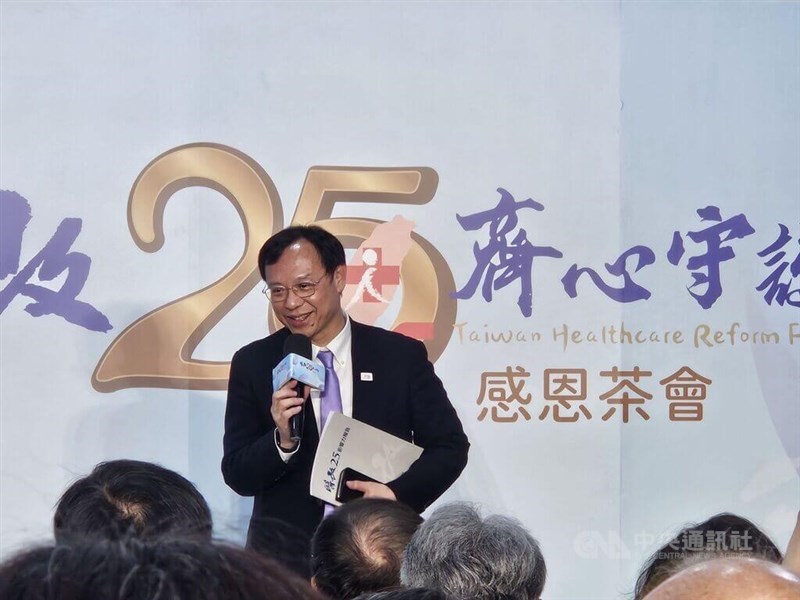
Taipei, Sept. 22 (CNA) Taiwan's Ministry of Health and Welfare plans to amend regulations to require two years of post-graduation training for all medical staff at aesthetic medicine clinics, following reports of several accidental deaths during procedures.
At a public event in Taipei on Sunday, Health Minister Shih Chung-liang (石崇良) said the amendment to regulations governing the administration and use of designated medical procedures, tests and devices is part of the ministry's effort to restore order in the aesthetic medicine and cosmetic surgery sector.
One recent case involved a 50-year-old man who died after undergoing penile enlargement surgery at a Taipei clinic last week.
Shih said that post-graduation training will be the threshold for performing lower-risk procedures, such as injections and laser or energy-based therapies, while all surgical aesthetic procedures will require the operating physician to hold a specialist qualification and certification in general surgery.
Doctors who do not meet the new standards will not be permitted to offer related treatments without passing a qualification review certified by the Joint Commission of Taiwan (JCT), he added. JCT is an accreditation body in healthcare.

Currently, there are no strict regulations on the qualifications of operating physicians in Taiwan, except for highest-risk aesthetic surgeries.
Other proposed changes include suspending doctors or clinics that violate the rules and making public their record. In addition, health insurance will no longer cover medical costs for patients injured due to physician error, according to Shih.
On Monday, Wang Shiou-han (王修含), a standing board member of Taiwan's Chinese Society of Cosmetic Surgery and Anti-aging Medicine, praised the Health Ministry's proposed amendments, saying they would better protect the public.
Citing Botox injections as an example, Wang noted that the South Korean government has included ingredient precautions in patient education manuals.
He advocated that aesthetic medicine shift from being "results-oriented" to "knowledge-oriented," urging the government to establish industry standards so the public can access information on ingredients, risk warnings and common side effects.
If all goes smoothly, the amendment could take effect by the end of the year, Shih said.
-
Politics
Two Taiwanese stranded in Israel amid conflict reach Jordan
03/02/2026 09:02 PM -
Business
124,000 Taiwanese have at least NT$100 million in assets: Report
03/02/2026 08:53 PM -
Society
Rain, cooler weather expected across Taiwan on Lantern Festival
03/02/2026 08:13 PM -
Society
Iran conflict to 'severely' delay Taiwan mail to 17 countries
03/02/2026 06:32 PM -
Cross-Strait
Iran could cloud Trump-Xi talks but unlikely to spark Taiwan war: Scholars
03/02/2026 06:13 PM